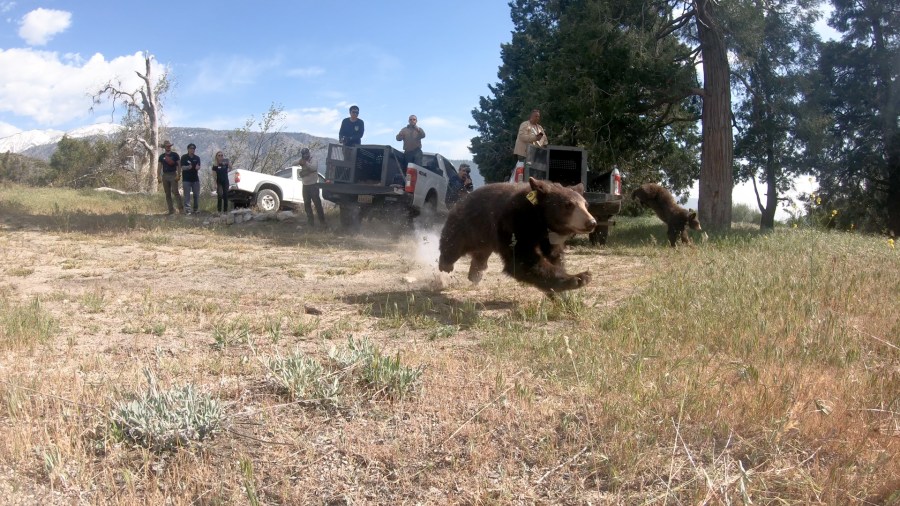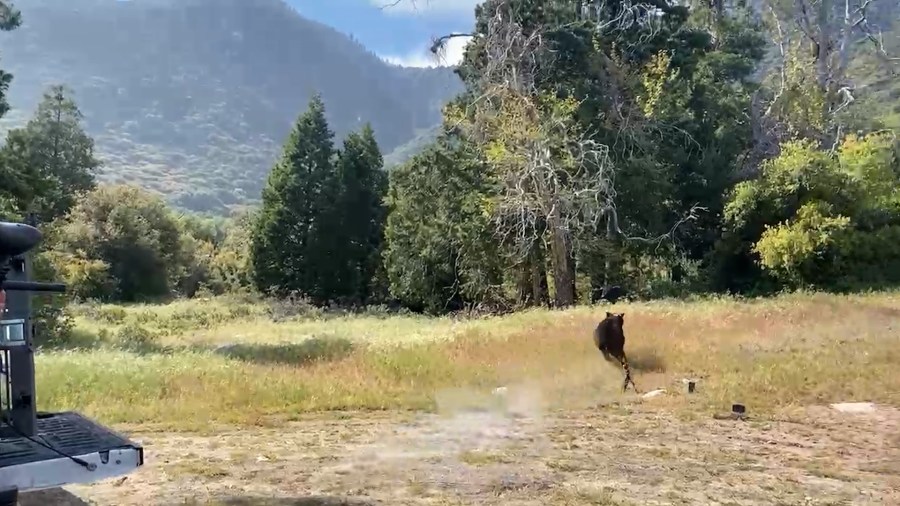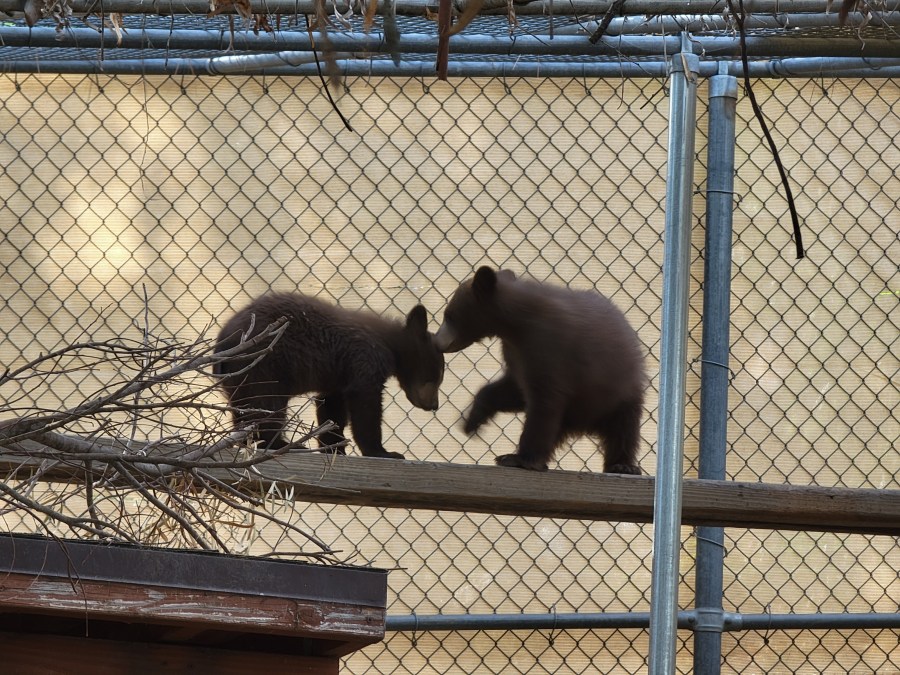A pair of brother black bears were released back into the wild last week.
The two siblings were rescued by the California Department of Fish and Wildlife in July 2023 after their mother was found deceased when they were just five months old.
“At only five months old, the cubs would have been too young to survive on their own,” experts with the San Diego Humane Society (SDHS) said. “Black bear cubs typically need to stay with their mother, or sow, for up to 17 months.”
Upon being reunited at the Ramona Wildlife Center in San Diego County, it was clear the brothers were happy to be together, SDHS said in a release.
The bears were kept in an outdoor enclosure mimicking their natural environment and were monitored by the humane society’s wildlife rehabilitation specialists. In addition to being fed fruits, vegetables, nuts, peanut butter and bear chow daily, they even received a 467-pound pumpkin from an Escondido couple after Halloween.
Once the bears showed they could successfully forage for food and survive on their own, they were deemed ready for release, the humane society said, adding that they were microchipped, fitted with GPS collars and given a clean bill of health by the humane society’s wildlife veterinary team.
“It’s a delicate skill to raise wild bears in captivity,” SDHS Ramona Wildlife Center campus director Andy Blue said. “Bears eat more than ten pounds of food per day, so to ensure they are fed without of staff ever being seen and they have plenty of enrichment to exhibit their natural behaviors without leaving human scents behind takes meticulous planning.”
San Diego Humane Society’s Project Wildlife program nurses more than 10,000 injured, orphaned and sick wild animals back to full health before releasing them back into their natural habitats. SDHS specializes in caring for native apex predators and birds of prey, including hawks, owls, eagles, coyotes, bears, bobcats and – under special case-by-case authorization – mountain lions.
























